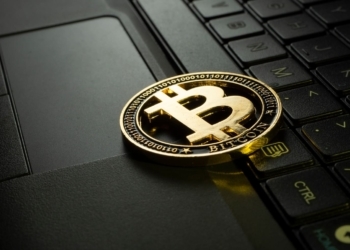Cryptocurrency exchange OKX recently reached a settlement with the U.S. Department of Justice (DOJ) by agreeing to pay a hefty sum of $50.5 million in response to its alleged failure to implement proper anti-money laundering measures.
OKX accepted responsibility for these deficiencies and expressed regret for failing to uphold its commitment to combating monetary crimes while also ensuring transparency within its operations. The $50.5 million penalty imposed by the DOJ signifies one of the largest settlements within the realm of crypto exchanges.
The Hong Kong-based exchange became a target after it was alleged that the firm had been lax in preventing money laundering and countering the financing of terrorism activities within its platform. OKX had overlooked these indispensable protocols from November 2014 to August 2017.
According to the allegations, OKX’s improper conduct led to a breach of the U.S. Bank Secrecy Act. While recognizing its shortcomings, the crypto exchange has reiterated its unwavering devotion to compliance and declared readiness to correct its deficiencies.
This hefty payment is a new blow to OKX, one of the largest digital asset exchanges worldwide. The incident has provoked concerns amongst crypto traders and experts alike, regarding the regulatory scrutiny digital assets face. The blockchain and crypto ecosystem has been under immense strain lately due to increased regulatory scrutiny from financial watchdogs globally.
“Digital assets and crypto exchanges are not exempted from following established legal norms and compliance rules. High-profile incidents like this draw attention to the necessity of exchanges exercising proper oversight and checks and maintaining transparent operations,” commented David Choi, a senior analyst.
This settlement coincides with a recent general regulatory crackdown. In addition to the United States, countries such as China and South Korea have also reignited their focus on tightening the regulatory leash on cryptocurrency businesses.
As regulators intensify their scrutiny, the crypto market has been seen to respond with volatility. For instance, Bitcoin, which hovers at approximately $52,000 at the time of writing, saw a sharp fall in price last week to below $48,000, amidst rising market concerns following the news of regulatory tightening.
The OKX settlement mirrors a broader concern regarding regulation and compliance in the crypto industry. While blockchain technology brims with potential, unchecked practices risk undermining trust in the industry. Strict adherence to regulatory conditions and robust internal compliance checks are integral to ensuring the sector’s growth and credibility.
With the spotlight placed solidly on compliance matters across all cryptocurrency platforms, exchanges must reassess their modus operandi to ensure regulatory rules are adequately honored. Scenarios like the one OKX finds itself facing further emphasize the importance of diligent legal compliance measures, as overlooking such protocols may lead to punitive consequences.
Despite the storm clouds gathering over the crypto sector due to regulatory tightening, many analysts believe that these moments of uncertainty can provide valuable lessons. As the dust settles, enforcing tighter rules may incentivize responsible practices within exchanges and potentially catapult the crypto industry into a new era of legitimacy.
“Critical as they may be, these developments are part of the maturation process for the crypto space,” says financial commentator and digital asset analyst Jason Lee. “The rules are crucial for maintaining integrity and investor trust, leading to more adoption, increased stability, and growth.”
While the remarkable growth of blockchain technology and cryptocurrencies has captured global attention, it has also raised regulatory eyebrows, necessitating a balance between innovation and compliance. The OKX incident reminds crypto platforms and the global crypto fraternity of the dire ramifications of flouting compliance norms.
As the crypto industry continues to evolve and regulatory pressures mount, the commitment to anti-money laundering protocols and transparency is more crucial than ever. This paradigm shift towards tightened compliance will protect investors and contribute to the sector’s overall growth and legitimacy.












Discussion about this post